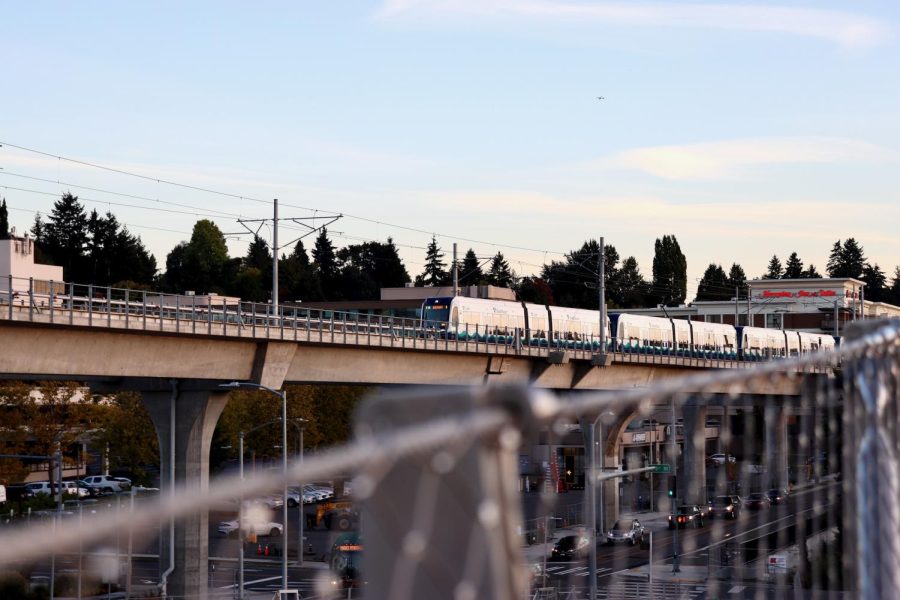Signs posted at Sound Transit stations read, “Fare Policy in effect starting November 15. Prepare to show fare on Sound Transit trains.”
King County is one of the only counties in Seattle that has fines for bus lines and other public transit. When the pandemic hit, fares were waived but now, in 2023, they are going back to enforcing citations for those who fail to provide proof of payment for the light rail or other public transit.
According to the Seattle Times, citations will become more intense for violators. “The new system has many more steps. Now, riders receive two warnings. On the third time not paying, they will receive a $50 citation, followed by a $75 citation after the fourth. Only at the fifth time will passengers receive a civil infraction, which, if gone unpaid, could eventually result in a misdemeanor,” the article reads.
Despite being aware of this new update on the transit system, some students are willing to take a gamble; getting on the light rail without paying.
Bryson Henry, a second-year biology major, does not pay for public transportation and is not frightened by the newly implemented enforcement. Henry stated that there is less of a demand for public transit with technological developments near campus.
“I also don’t use the light rail that often. I mostly use Lime scooters,” Henry said.
Other students echo Henry’s lack of apprehension around forgoing fare payment because they are still under the age of 18 and fares are not applicable.
Gabby Taylor, a first-year psychology major, has been using public transportation in Seattle since she was eight years old. She rode the buses and then started using the light rail when it was built.
“I like that it’s free public transportation for people 18 and under,” Taylor said. “My favorite memory using public transport is when I was eight and would take the bus to see my mom at work on Fridays in the summer.”.
Seattle U students come from all over the world and have varied experiences with other systems of public transportation that they can compare to Seattle’s system.
Henry is originally from Spokane, Wash., and he used to take the bus there.
“I like the bus system in Spokane because it’s fairly easy to use, and bus routes are connected well to get across town. It only costs two dollars for non-stop usage for two hours,” Henry said.
Seattle’s day pass for an adult is $4.50, according to the Seattle Department of Transportation.
Amberlee Espinoza, a first-year business analytics and biology major, has noted differences in Seattle public transportation opposed to other cities.
“New York City’s subway is worse compared to Seattle, but it’s just as dirty. Boston’s system is better than Seattle because it’s cleaner and it’s a bigger system with more lines that can get you outside of Boston,” Espinoza said.
Grading the systems on reliability, Espinoza finds that Seattle beats New York City as well.
“There would be times when the subway would be down for hours. Seattle has a pretty predictable schedule,” Espinoza said.
Her overall winner is not found in the United States, but in Europe, where their systems are known for being more consistent because they’ve been around longer.
“Denmark is the overall winner because it’s simple to use and the cleanest to use,” Espinoza said.
In Denmark they also have an honor system like Seattle, but if you are caught they will fine you $175 U.S. dollars on the spot. Seattle has a much more lenient fining system with lots of warnings before fines.
In order to avoid any warnings or fines, Seattle U students can search up the Transportation and Parking Services on the Seattle U home page to learn more about getting an Orca card.








